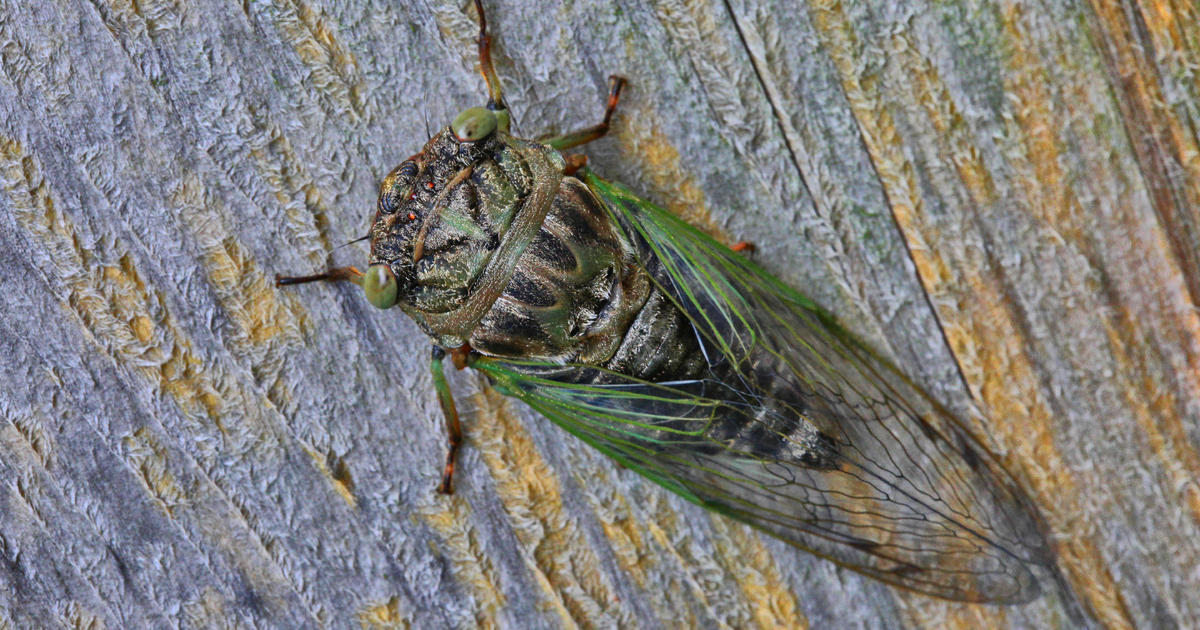Sex Trafficking On The North Shore
DULUTH, Minn. (WCCO) -- Men stalking girls at schools and malls only to sell them for sex isn't just happening in other countries. Sex trafficking happens every day in Minnesota. The justice department said the Twin Cities is one of 13 communities with a high number of sexually-exploited children.
One particular population has fallen prey to trafficking for years: Native Americans. And it's happening in a place you'd least suspect.
More than three million people visit each year to see Duluth's beauty. Some come with a dark secret much deeper than the temptations that are easy to see.
A secret that's kept on ships, in the streets and behind closed doors.
One woman, who has asked not to be identified, went to college in Duluth. She worked as a prostitute and a recruiter, under the power of a man who would control her life for years.
"Once you get sucked in, you just don't know where to turn," she said, adding that she met her "pimp" at the age of 17. "You can get girls to go pretty easily and there's also a huge population of John's that are asking for it."
Lt. Scott Drewlo with the Duluth Police Department admits it is hard to imagine that sex trafficking would happen in his city.
"These are U.S. citizens that are essentially being kidnapped and held hostage and forced into commercial sexual exploitation right in your shore," Drewlo said.
Police say what was happening inside an old building near Duluth's downtown is considered a classic case. Four years ago, 33-year-old James Redd opened "The Hip Hop Candy Shop." He called it a recording studio and candy store. Police would later learn that at least four Native American girls between 13 and 17 were being bought and sold for sex at the store.
"He was looking for disenfranchised kids. He knew where to find them and he knew how to entice them," Drewlo said.
The girls said Redd promised them new clothes, shoes, manicures and haircuts only if they'd agree to work at strip clubs, have sex with him and have sex with other men of his choosing.
While police never found out where the girls in this case came from, the Fond Du Lac Indian Reservation, 30 miles from Duluth, has its own history in the sex-trafficking trade.
Lisa Pollak is the social services department coordinator for Fond Du Lac. She's worked with dozens of girls who have been lured by scouts, looking for girls at schools or malls, only to be sold into prostitution. Some girls, Pollak said, are as young as 10 and 12 years old.
"There are some families that live in such poverty that this is such a bribe for them that's intriguing," said Pollak. "We've found that the girls are going to the cities, Chicago, Milwaukee and even to Las Vegas."
If they don't get there by land, police believe it's happening by boat. A thousand ships a year dock at the Duluth harbor. There have been reports of women being sold to crews only to come back months later.
Tracking down just how much this is happening has been a challenge for police. One study found that nearly 350 Native-American women and girls were the victims of sex trafficking over four years. But that only includes survivors who have spoken out.
"For every one that you hear about there's probably seven to 10 that you don't," Drewlo said.
In the case of Redd, a drug bust would put an end to his candy shop business. Police identified his victims by tattoos. His name was scrawled on their backs. His power over them was so strong, they'd take his calls from jail.
When police searched Redd's computer, they found pornographic pictures of his victims posing for the camera and more photos from a local school dance. Police think it's one way Redd would zero in on his recruits.
Suzanne Koepplinger is the executive director of the Minnesota Indian Women's Resource Center in Minneapolis.
"As long as there is a demand, there is a supply," Koepplinger said.
Her organization's study found one in every three Native-American women will be raped in their lifetimes and Native-American women have the highest rate of physical and sexual victimization in the nation.
There is renewed effort across the state to break the cycle. Advocates visit Minnesota's 11 reservations to raise awareness. Native-American organizations have teamed with Duluth Police to form a sex-trafficking task force. The U.S. Coast Guard is also on board, watching the water.
Investigators say the biggest challenge is trying to shatter a stereotype that these girls are criminals. A bill working its way through the state Capitol in St. Paul intends to decriminalize juveniles who have been prostituted.
And it's not just happening on reservations. The woman who was a victim of sex trafficking, who spoke on the basis of anonymity, said before moving to Duluth, she lived in the Twin Cities suburbs.
"You wouldn't suspect your daughter, your sister to get involved in it, but you'd be very surprised by the girls who do get involved with it," she said.
An international event coming up on May 13-14 in St. Paul will raise awareness about the issue. The organizations Breaking Free and Mattoo are sponsoring two days of events, including a rally and walk to the Capitol, on Saturday, May 14.



